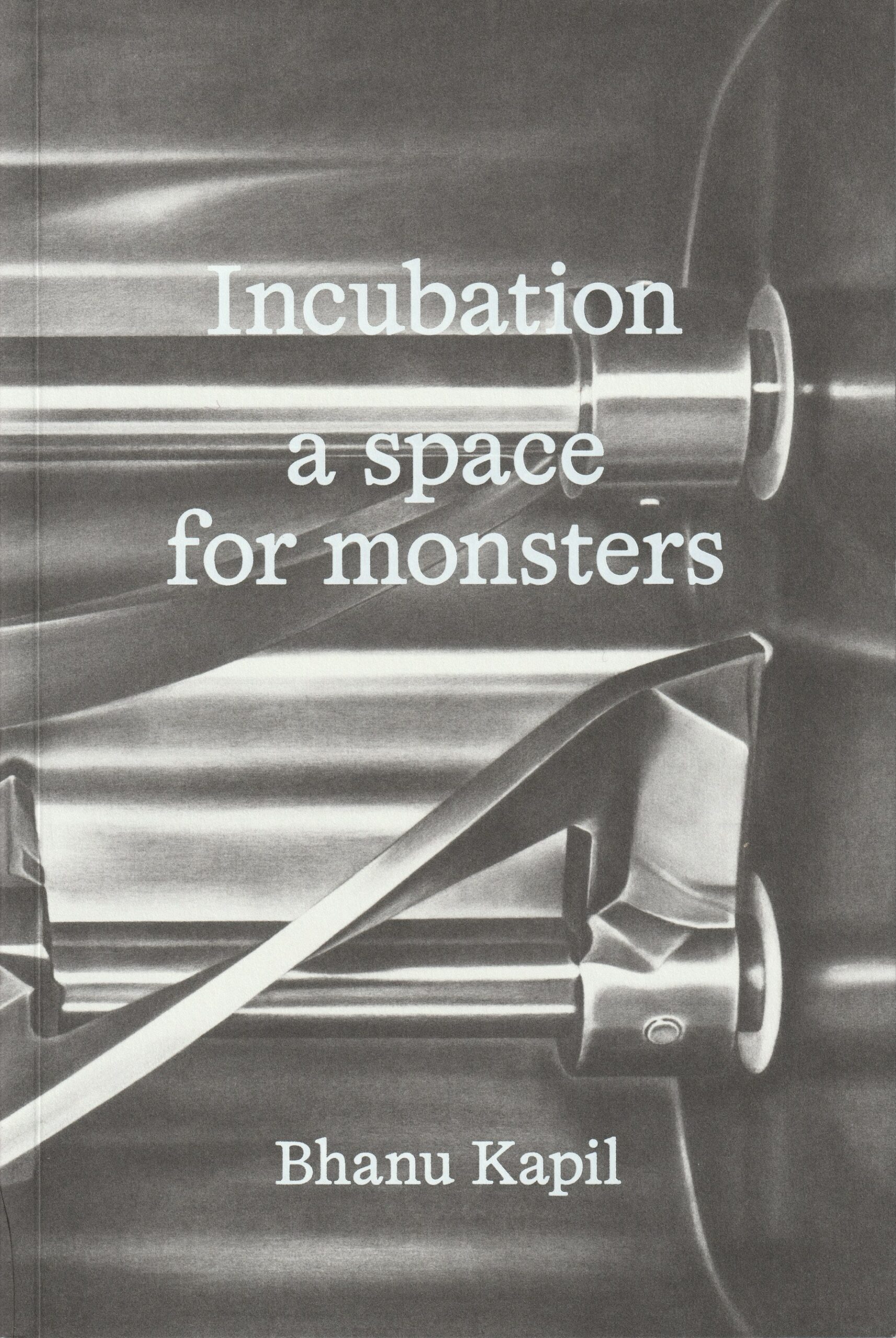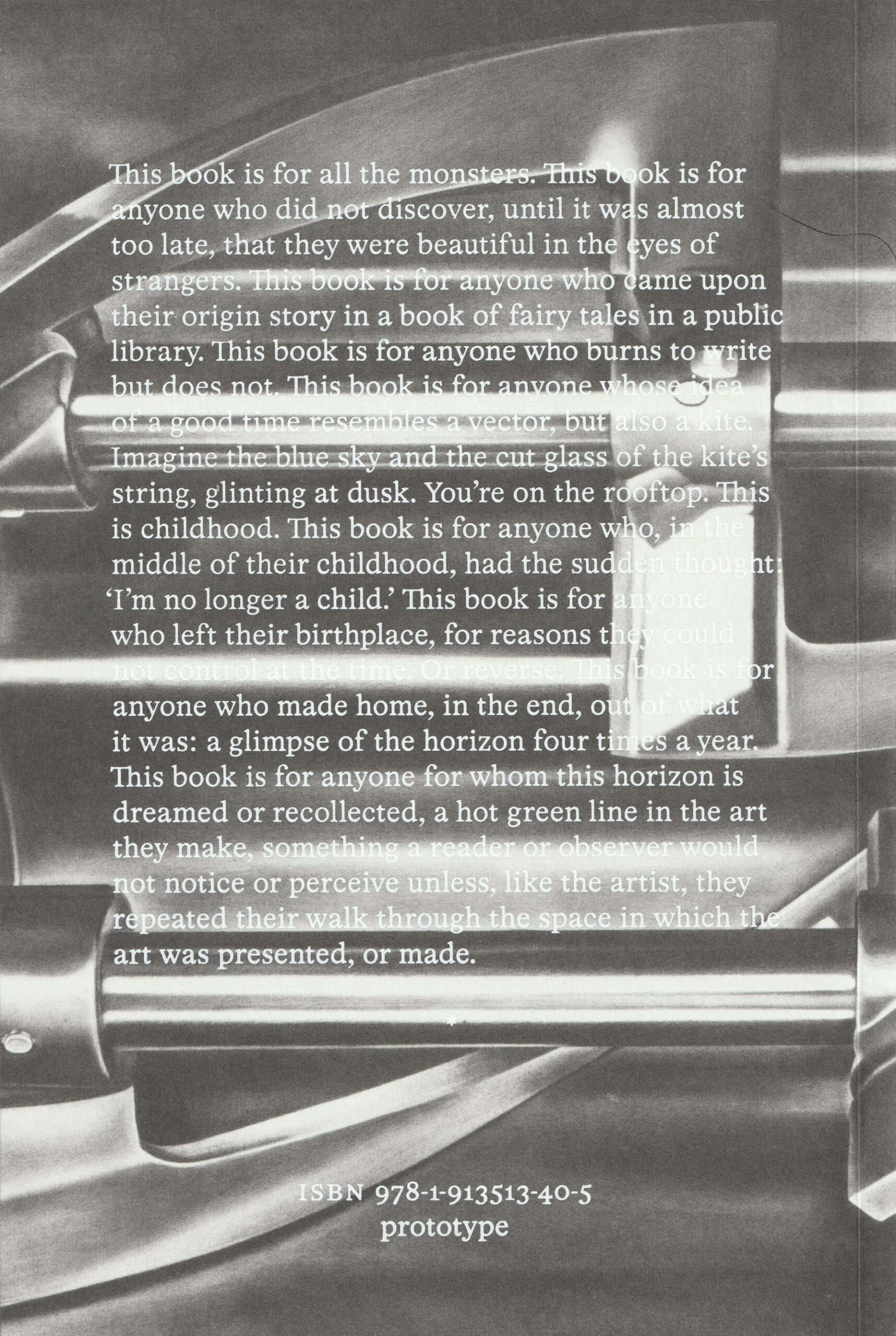Incubation: a space for monsters
£12.00
Bhanu Kapil
In stock
Incubation: a space for monsters is a formally innovative, hybrid-genre book that incorporates poetry and prose. Set in a shifting narrative environment, where human bodies, characters, and text are neither one thing nor another, this fragmentary-diaristic text journeys through the spaces in-between. Originally published in America in 2006 by Leon Works, and out of print for the last seven years, this is the first time this seminal text has been available in the UK.
Following protagonist Laloo – Cyborg, girl, mother, child, immigrant, settler – on a roadtrip through American landscapes, genre styles, and form, Incubation creates radical space for what is ‘monstrous’. Appropriating iconic American tropes, and the structure of Jack Kerouac’s On the Road, Incubation explores the challenges faced by immigrants in attaining such notions of freedom in so hostile an environment. In this fragmentary document there is a celebration in the cobbling together of lives; global in scope, with an intimate focus on interior voice, this landmark text evidences the early innovations and talents of this T.S. Eliot prizewinning author.
‘I read everything Kapil writes and each time am left in awe at her erudite dexterity to see the book, not as a medium of mere knowing, but of questing. Here she casts the dialectical inquiry between continuity and rupture, deploying cyborgs and monsters to overlay and amplify existential questions for the Anthropocene. The result is an ambitious work of complex yet coherent semiotic prowess I can’t wait to teach from.’ – Ocean Vuong
Description
‘This book is for all the monsters. This book is for anyone who did not discover, until it was almost too late, that they were beautiful in the eyes of strangers. This book is for anyone who came upon their origin story in a book of fairy tales in a public library. This book is for anyone who burns to write but does not. This book is for anyone whose idea of a good time resembles a vector, but also a kite. Imagine the blue sky and the cut glass of the kite’s string, glinting at dusk. You’re on the rooftop. This is childhood. This book is for anyone who, in the middle of their childhood, had the sudden thought: ‘I’m no longer a child. This book is for anyone who left their birthplace, for reasons they could not control at the time. Or reverse. This book is for anyone who made home, in the end, out of what it was: a glimpse of the horizon four times a year. This book is for anyone for whom this horizon is dreamed or recollected, a hot green line embedded in the art they make, something a reader or observer would not notice or perceive unless, like the artist, they repeated their walk through the space in which the art was presented, or made.’
Incubation: a space for monsters is a formally innovative, hybrid-genre book that incorporates poetry and prose. Set in a shifting narrative environment, where human bodies, characters, and text are neither one thing nor another, this fragmentary-diaristic text journeys through the spaces in-between. Originally published in America in 2006 by Leon Works, and out of print for the last seven years, this is the first time this seminal text has been available in the UK.
Following protagonist Laloo – Cyborg, girl, mother, child, immigrant, settler – on a roadtrip through American landscapes, genre styles, and form, Incubation creates radical space for what is ‘monstrous’. Appropriating iconic American tropes, and the structure of Jack Kerouac’s On the Road, Incubation explores the challenges faced by immigrants in attaining such notions of freedom in so hostile an environment. In this fragmentary document there is a celebration in the cobbling together of lives; global in scope, with an intimate focus on interior voice, this landmark text evidences the early innovations and talents of this T.S. Eliot prizewinning author.
‘A feminist, post-colonial On the Road.’ – Douglas A. Martin
‘Incubation: A Space for Monsters is a transnational love song, an avowal for immigrants, monsters, and girls everywhere.’ – Emgee Dufresne
‘In Incubation, we are offered a migration narrative that contends with histories of the colonized, in which an immigrant ignorant to the violence that is the United States, arrives to give birth to a monster. Kapil constructs a loose tool for cyborg/monster travelers: for those who have assimilated and are suffering because of their insides, and for those who cannot adapt or refuse to and thus, do not survive. She reminds us that one’s becoming is not and never our own, but rather, tortuously prescripted.’ – Eunsong Kim
‘This itinerant book, which has now travelled back to the UK, continues a trajectory established by G. V. Desani’s All About H. Hatterr. Part autofiction, part cyborgian existentialism, each sentence cuts through the coloniser’s cheek, revealing its rotten tongue’s hallucination of ‘others’ as ‘monsters’. Can we reclaim our monster-hood? Is that possible for those of us who have to daily stomach ‘great replacement’ theories and other such tutti and pishaav? We may not find answers, but we will find a red vengeance at the precise moment where a snarl and a laugh become indistinguishable. We may also meet Laloo, the epistolary idiot – the apostrophe, the reader – whose whimsical worldliness disavows monocultural ghettoes and brings the conversation this book initiates towards what Walter Benjamin would call ‘the tradition of the oppressed’. Bhanu Kapil, renowned as a poet, has incubated for such a long time that great monster: the novel. What a gift this book is! And after all this time, on its own odyssey: it still reads with such fresh air.’ – Azad Ashim Sharma
Bhanu Kapil was elected a Fellow of the Royal Society of Literature in 2022. Her most recent book, How To Wash A Heart (Liverpool University Press), won the T.S. Eliot Prize and was a Poetry Book Society Choice. The recipient of a Windham- Campbell Prize and a Cholmondeley Award, both for poetry, Kapil is the author of six full-length collections. For twenty years, she taught creative writing, performance art and contemplative practice at Naropa University in Boulder, Colorado. Currently, she is based in Cambridge as a Fellow of Churchill College. She also teaches for the University of Vermont’s Rubenstein School of Environment and Natural Resources, as part of a practice- based Ph.D. in Transdisciplinary Leadership and Creativity for Sustainability.




